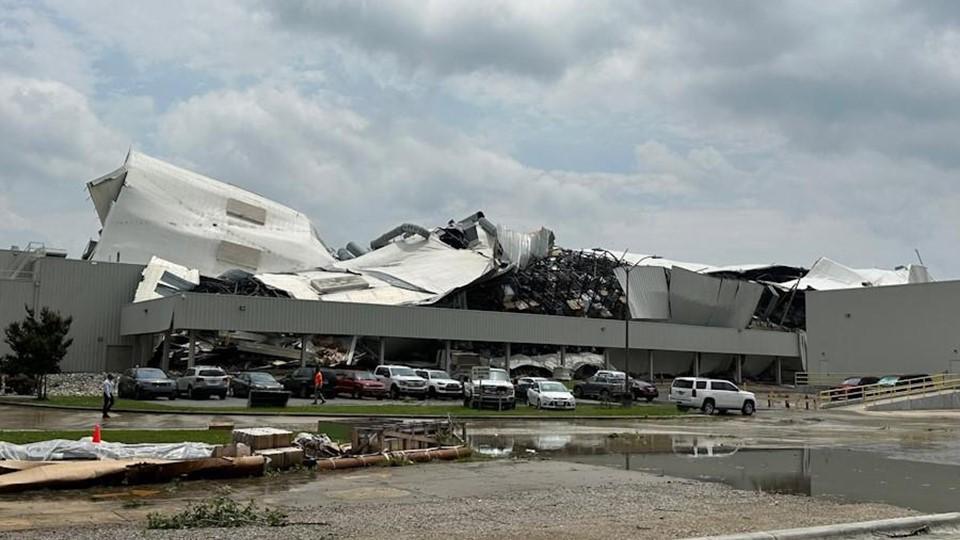Tornado-hit Pfizer facility could add to US drug shortages

The severe damage caused by a tornado to one of the largest facilities making sterile injectables in the US has raised fears it could exacerbate shortages of some medicines in the US.
The Pfizer facility at Rocky Mount in North Carolina was hit by an EF3 power tornado that touched down on Wednesday, facing winds that peaked at more than 150 miles per hour and wreaked havoc with the roof and structure of the building.
In a Twitter statement, Pfizer chief executive Albert Bourla confirmed that the staff working at the facility have been confirmed safe, with no serious injuries reported, even though the site had suffered “tremendous damage”.
“We already have teams on the ground assessing the damage and supporting our colleagues, and we are working urgently to determine the best way to get back online as quickly as possible, while ensuring the safety of our people,” he said.
It has been estimated that the plant – acquired by Pfizer as part of its $17 billion takeover of generics giant Hospira in 2015 – produces around a quarter of all sterile injectables used in US hospitals and also exports medicines to other countries around the world.
It employs upwards of 2,000 people, has 1.4 million sq. ft. of manufacturing space, 24 filling lines and 22 packaging lines, and produces critical medicines like anaesthetics, antibiotics, painkillers, and muscle relaxants used in surgeries.
Last year, a survey (PDF) by the American Society of Hospital Pharmacists (ASHP) found that almost all of its members reported being affected by shortages of sterile injectable medicines, including products in the categories produced at Rocky Mount. More than 300 medicines are currently in limited supply, according to an ASHP database.
Rocky Mount makes “small volume presentations, such as ampules, vials, and syringes, and large volume presentations, such as IV bags and semi-rigid bottles,” which feature prominently among the ASHP shortages list.
That ongoing issue of shortages has, however, led hospitals to start increasing their inventory of some drug categories particularly prone to shortages – such as chemotherapies, pain drugs, and anaesthetics – which may offset the supply issues, at least in the short term.
Overall, around 16 people were harmed as a result of the storm, two with life-threatening injuries, according to local media reports. The tornado touched down for more than 16 miles, according to the National Weather Service, leaving a trail of devastation in its wake.













